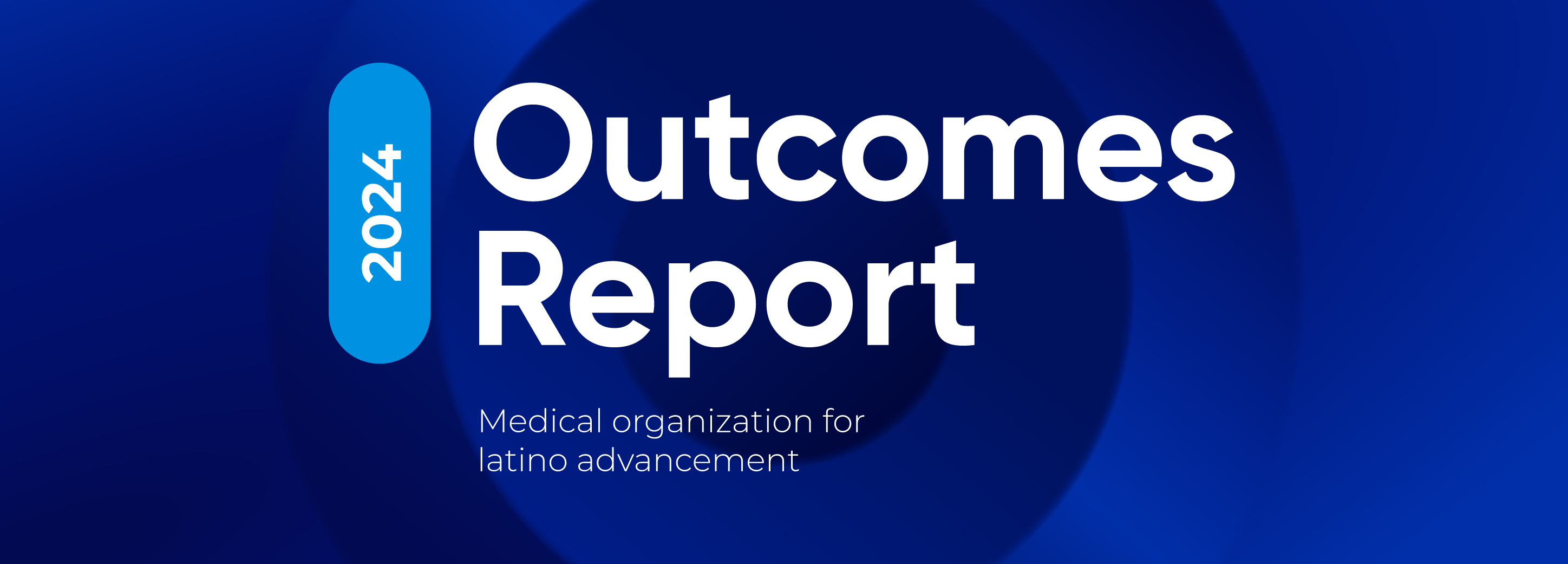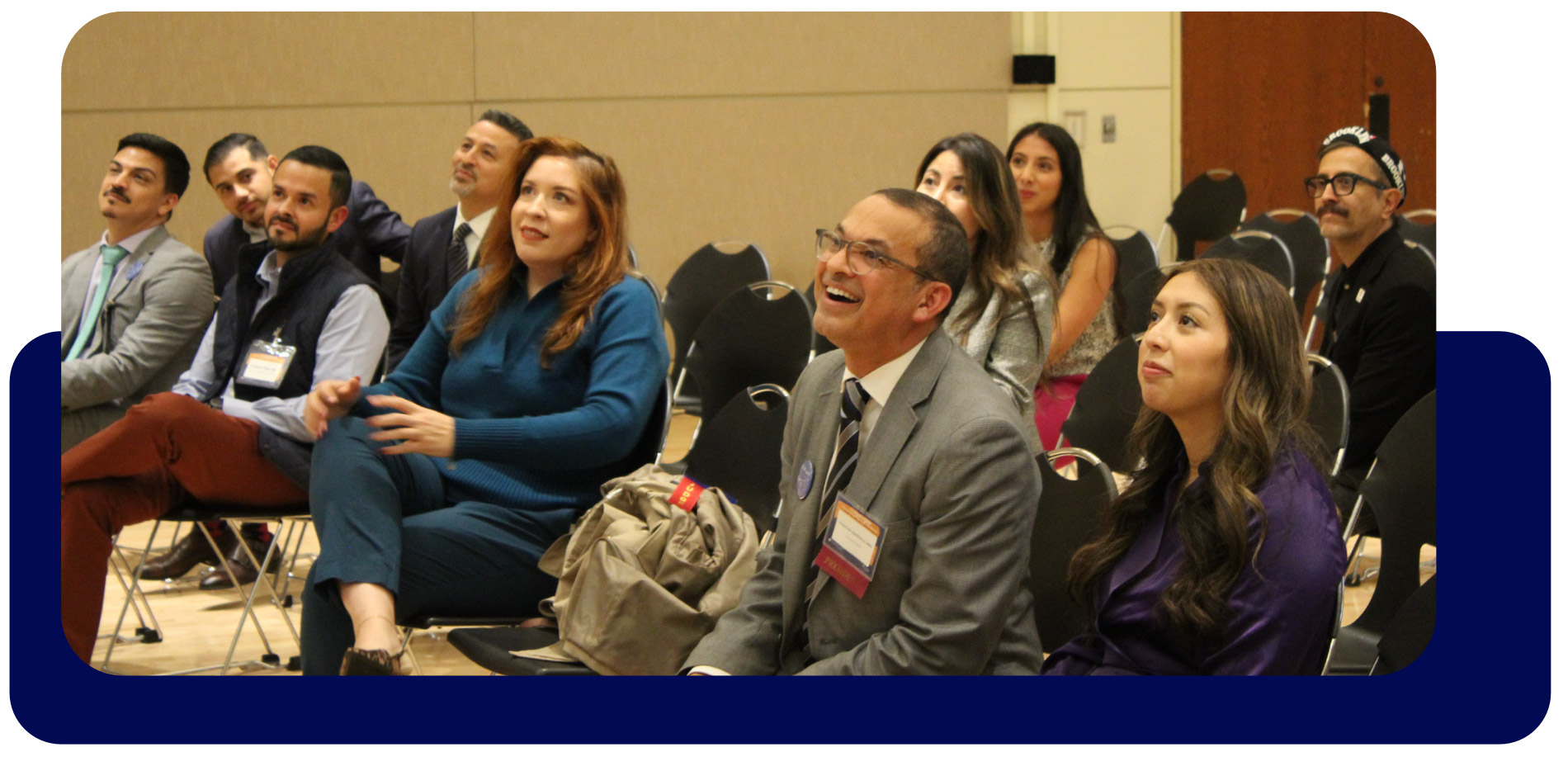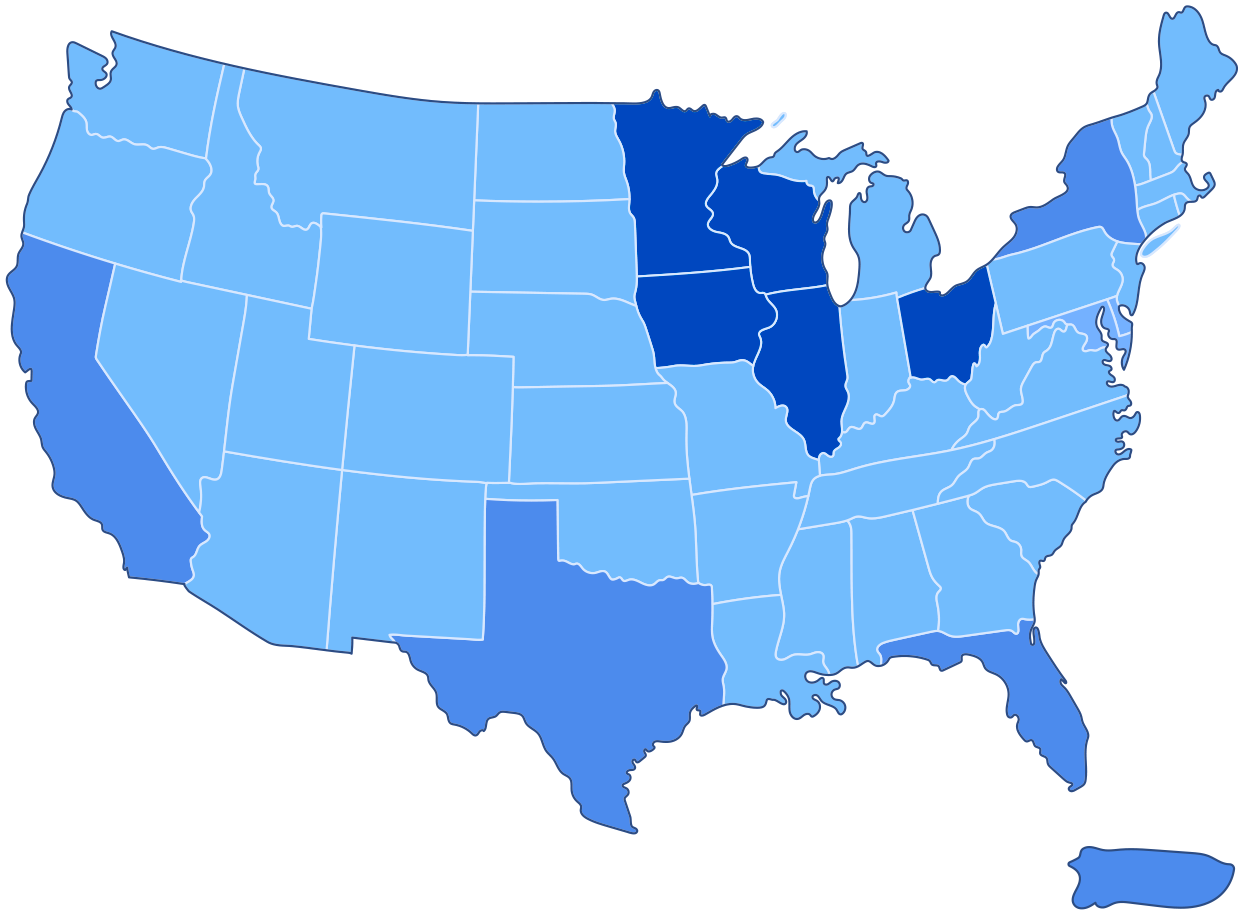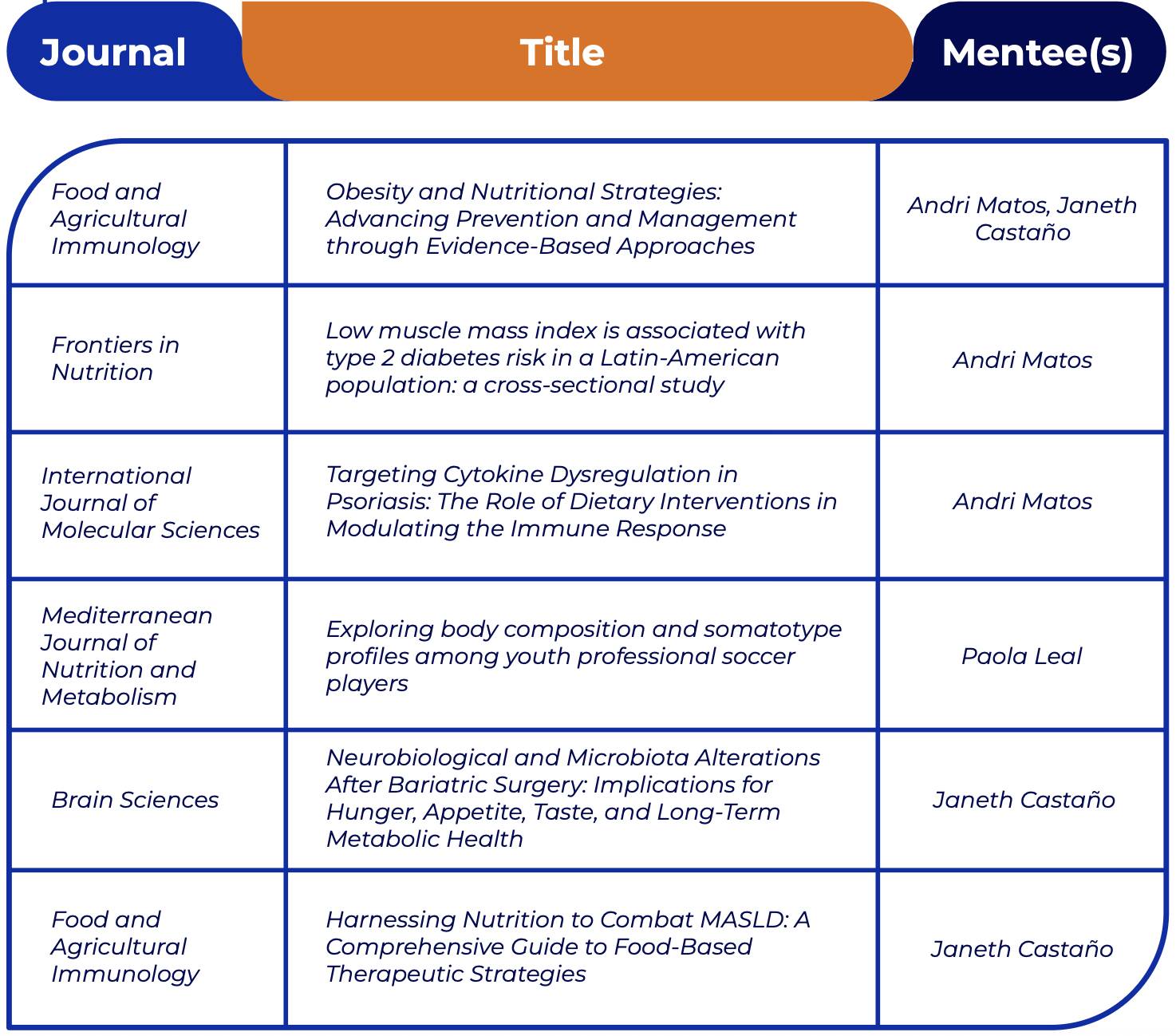
OUTCOMES REPORT 2024
Overview
This newly integrated event combined the legacy of the MOLA Latino Health Symposium and the NAMS Medical Spanish Summit into a unified, two-day conference for the first time. The expanded format allowed for a broader range of educational sessions, deeper engagement, and increased networking opportunities for attendees from across the country.
This milestone event was made possible through the support of our Institutional Partner, the Hispanic Center of Excellence at the University of Illinois Chicago, under the leadership of Dr. Mónica Vela.
The Medical Organization for Latino Advancement (MOLA) was founded to create programs and solutions to increase representation and reduce the inequities that Latinx students and professionals experience in medicine and across healthcare fields. Ultimately, MOLA aims to improve the health and well-being of the Hispanic/Latinx community and all.

Objectives
Innovating the Abstract Submission Process
In 2024, the conference planning committee implemented a new abstract and session proposal submission process, enhancing accessibility and inclusion. For the first time, individuals were invited to submit either a research abstract (for poster or oral presentations) or a full session proposal. A fully Spanish-translated application was also launched, resulting in four submissions entirely in Spanish, all reviewed by native Spanish-speaking evaluators to ensure linguistic and cultural accuracy.
The submission process yielded strong engagement, with a total of:
- 99 submissions including 4 session proposals. Thanks to the diligent efforts of our volunteer abstract judges
- 44 poster presentations
- 34 oral presentations and all
- 4 proposed sessions were selected for inclusion in the conference program.
441 Total Registrants
Breakdown of Professionals (Total: 141)
- Clinicians (including Doctors, Pharmacists, Nurse Practitioners,
- Physician Assistants, Nurses and Social Workers): 35
- Medical Trainees – Residents & Fellows: 12
- Educators: 51
- Health Administrators and Public Health Professionals: 15
- Researchers: 28
- Did not specify: 36
Breakdown of Students (Total: 300)
- Doctorate candidates: 10
- Masters candidates: 13
- Medical students: 138
- Post Graduate: 7
- Pre-Health: 9
- Undergraduate: 99
- Did not specify: 24
MOLA MEMBERSHIP COMPOSITION AND GEOGRAPHIC SCOPE
MOLA’s membership base practices primarily in the Midwest (Illinois, Wisconsin, Indiana, Minnesota, Iowa, and Ohio) and its diaspora reaches Puerto Rico, Florida, New York, Texas, California, and New England states.
MOLA members’ health fields include Behavioral Health, Physicians, Physician Assistants, Nurse Practitioners, Public Health experts, and Healthcare Management professionals.

MOLA MENTORSHIP EDUCATION
As part of the education series, MOLA Academic Pathways, a curriculum was implemented to build skills and provide resources to our mentees. The 18 sessions covered a diverse range of topics including career exploration, application support, cultural competency, and wellness, drawing participants across multiple sessions. Popular sessions included “Exploring the Physician Assistant Profession,” “Culturally Competent Care,” and “Mobile Migrant Health Team,” reflecting strong interest in both clinical pathways and equity-focused topics.
Overall, participants reported that the objectives were clearly stated and accomplished, and all participants agreed that the session added value to their career objectives.
The Mentorship program engages expert speakers and presenters in the fields supporting the advancement of our mentees.
MOLA MENTORSHIP CLASS OF 2024-25 OUTCOME
As part of the program, a curriculum was implemented to build skills and provide resources to our mentees. The 12 sessions covered topics on: Transgender Health, Student Loans, My History-Dr. Rosalinda Alvarado, How to make a professional CV, ERAS Blueprint: Empowering Latinx for Match Success, Environmental Racism and the basics of Family Law.
Overall, participants reported that the objectives were clearly stated and accomplished, and all participants agreed that the session added value to their career objectives.
The Mentorship program engages expert speakers and presenters in the fields supporting the advancement of our mentees.
All participants agreed that the speaker had a good knowledge of the topic. The lectures focus on practicing what is explained during the lecture and most of the participants agreed that this is the part they value the most.
MENTEE OUTCOMES

MENTOR OUTCOMES
MENTORSHIP PROGRAM SUB COMMITTEES:
Three subcommittees are part of the Mentorship Program: Sexual and Gender Minority Health Committee, International Health Graduates (IHG), and Aves del Paraíso: Immigrant Health Taskforce. Our efforts aim to support existing community organizations and other MOLA programs, advocating for LHS+ participation in local health policy-making, implementing and supporting cultural and linguistically concordant healthcare, literacy resources, and research, and bridging the gap of LHS+ physicians.
SEXUAL AND GENDER MINORITY HEALTH COMMITTEE
Co-Chairs: Bryan Huerta and Ariana Carrillo, pre-medical students The Sexual and Gender Minority Health Committee (SGM team) strives to create a safe space for LGBTQIA+ individuals in the LHS+ community. We are dedicated to supporting our communities’ educational and professional development.
2024 in a Nutshell
We focused on creating a gender-inclusive Medical Spanish curriculum that will be implemented among local Chicago clinics. In 2024 we:
- Created our curriculum and began the process of running focus groups for community feedback.
- Helped plan the 2024 LGBTQ+ track at the MOLA – NAMS 2024 Annual Conference.
- Presented “Inclusive Medical Spanish Curriculum” at the MOLA – NAMS 2024 Annual Conference: The Healing Power of Our Roots.
- Team member, Samuel Mendez, presented at the 2024 APHA conference, in a presentation entitled, “Making space for trans+ latine patients: A literature review informing a curriculum for gender-inclusive medical spanish.”
INTERNATIONAL HEALTH GRADUATES
Co-Chairs: Janeth Cristina Castaño, MD, and Josselyn Velapucha, MD
IHG Research Subcommittee
Research leader, Dr. Evelyn Frias-Tora, published in important clinical journals along with IHG members

Mentoring Sessions
Multiple structured mentoring sessions were conducted, covering:
- Scientific writing techniques
- Journal selection strategies
- Response-to-reviewer best practices
- Ethical authorship and publication standards
- Career development in academic research
Peer Review Engagement
Mentees were nominated and guided in their first peer-review
experiences. The following individuals were supported in accepting
and completing peer review invitations:
- Andri Matos
- Raquel Horowitz
- Santiago Bastidas
- Janeth Castaño
- Carolina Velepucha
- Jonathan Loayza
